112 have author last names that start with D have author last names that start with D


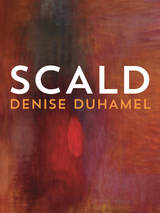
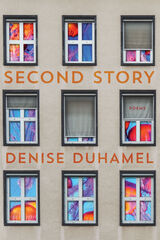
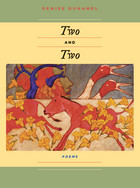
Denise Duhamel's much anticipated new collection begins with a revisionist tale--Noah is married to Joan of Arc--in a poem about America's often flawed sense of history. Throughout Two and Two, doubles abound: Noah's animals; Duhamel's parents as Jack and Jill in a near-fatal accident; an incestuous double sestina; a male/female pantoum; a dream and its interpretation; and translations of advertisements from English to Spanish. In two Möbius strip poems (shaped like the Twin Towers), Duhamel invites her readers to get out their scissors and tape and transform her poems into 3-D objects.
At the book's center is "Love Which Took Its Symmetry for Granted," a gathering of journal entries, personal e-mails, and news reports into a collage of witness about September 11. A section of "Mille et un sentiments," modeled on the lists of Hervé Le Tellier, Georges Perec, and George Brainard, breaks down emotions to their most basic levels, their 1,001 tiny recognitions. The book ends with "Carbó Frescos," written in the form of an art guidebook from the 24th century.
Innovative and unpretentious, Duhamel uses twice the language usually available for poetry. She culls from the literary and nonliterary, from the Bible and product warning labels, from Woody Allen films and Hong Kong action movies--to say difficult things with astonishing accuracy. Two and Two is second to none.
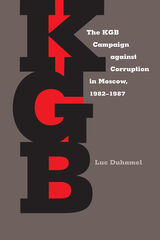
Inthis original study,Luc Duhamel examines the KGB at its pinnacle of power. The appointment of former KGB director Yuri Andropov as general secretary of the Communist Party in 1982 marked the height of KGB influence. For the first time since Stalin, Beria, and the NKVD, there was now an unquestioned authority to pursue violators of Soviet law, including members of the Communist Party. Duhamel focuses on the KGB’s investigation into Moscow’s two largest trade organizations: the Chief Administration of Trade and the Administration of the Moscow Fruit and Vegetable Office. Like many of their Soviet counterparts, these state-controlled institutions were built on a foundation of bribery and favoritism among Communist Party members, workers, and their bosses. This book analyzes the multifarious networks of influence peddling, appointments, and clientelism that pervaded these trade organizations and maintained their ties to party officials.
Through firsthand research into the archives of the Andropov-era KGB and the prosecutor general’s office, Duhamel uncovers the indictment of thousands of trade organization employees, the reprimand of Communist Party members, and the radical change in political ideology manifested by these proceedings. He further reveals that despite aggressive prosecutions, the KGB’s power would soon wither, as the agency came under intense scrutiny because of its violent methods and the ghosts of the NKVD. The reinstatement of Moscow city government control over the trade organizations, the death of Andropov, and the rising tide of democratic reform would effectively end the reign of the KGB and its anticorruption campaigns.
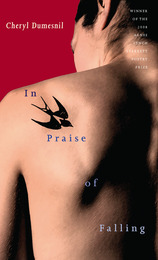
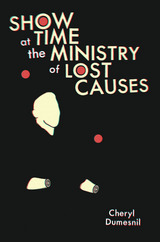

Duncan views the work of six writers in the context of more well known writers of the period (Ruflo, Fuentes, and Del Paso), and concludes with a chapter on other recent innovators in Mexican literature. Despite their diversity, these texts share many common features, and unlike social realism, the works are not openly political, but at the same time they question assumptions about reality itself-and the relation of fiction to truth.
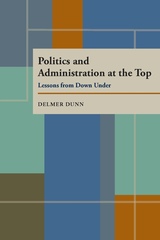
Winner of the 1998 Charles Levine Award for best book on administration and policy
Dunn focuses on two levers of power in modern democracies, the elected party politician and the professional state bureaucrat, using Australia as his example. Dunn uses interviews with Cabinet ministers, members of their staffs, and department heads of two governments in Australia to see how ministers seek to provide political direction to the bureaucracy. He examines the extent to which they succeed and how their direction is both influenced by and acted on by the departments.
Dunn's analysis provides a rare look at high-level relationships between politicians and executive departments in one democratic government and offers insights into issues of accountability and responsibility in democratic governments. His findings, based on his in-depth look at a government that blends many features of both U.S. and British governments, reveal the fundamentals that are necessary to make this key relationship work well and are thus pertinent to public administration in all democracies.
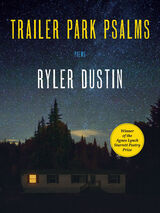
Trailer Park Psalms traces the speaker’s journey beyond his boyhood trailer park, through an American landscape marked by violence—from a gas line explosion in his hometown to his father’s war memories to the scars of colonialism inscribed in place, language, and ecology. Along the way, he searches for sources of awe that might inspire us, even in a compromised world: the everyday miracle of eyesight, the courage of the Voyager spacecrafts, and the “clumsy kindness” of family members trying to mend the damages of the past. In the end, what he finds isn’t faith but the hope that “if there’s a heaven, we will bend / to examine our old selves / and wonder how something so delicate / was ever allowed.”
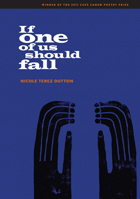
“Nicole Terez Dutton’s fierce and formidable debut throbs with restless beauty and a lyrical undercurrent that is both empowered and unpredictable. Every poem is unsettling in that delicious way that changes and challenges the reader. There is nothing here that does not hurtle forward.”<br>
—Patricia Smith
READERS
Browse our collection.
PUBLISHERS
See BiblioVault's publisher services.
STUDENT SERVICES
Files for college accessibility offices.
UChicago Accessibility Resources
home | accessibility | search | about | contact us
BiblioVault ® 2001 - 2024
The University of Chicago Press









